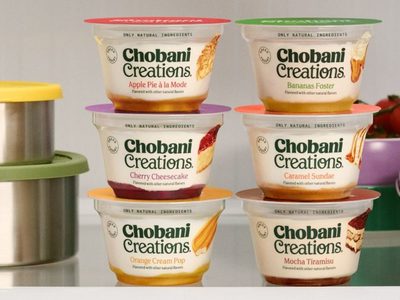Making wellness claims
Kosher, gluten-free and natural are the top three wellness claims, according to a report compiled by Todd Hale, retail insights thought leader and former senior vice-president of consumer and shopper Insights for Nielsen.
Organic food products also are on the rise, according to Innova Market Insights. Newer products include organic bread for children in wheat and white varieties; organic, vegan, gluten-free and non-G.M.O. macaroons; and a line of square-shaped clean label buns.
“In 2017, strong niches will continue to be more alternative ingredients, no additives or preservatives, non-G.M.O. and organic,” Ms. Figgins said. “This differs from some of the prior niche marketing to groups like ‘gluten free’ or ‘free from’ as a single product attribute.”
The family-owned Partners launched its first gluten-free line, including gluten-free crackers and brownie thins, under the Free for All Kitchen banner.
“We recognize that not only is there a gluten-free consumer, but that there is a niche gluten-free consumer who doesn’t want to forego taste, texture, specialty and good-for-you qualities just to have gluten-free,” Ms. Figgins said. “Our products meet those needs by using alternative grains and high-quality, not just better-for-you, but good ingredients.”
Older Americans are beginning to consider nutrition to address specific health issues related to aging. As these consumers become more educated about the relationship between nutrition and health benefits, niche markets such as increased fiber and whole grains as well as less animal protein and more plant-based foods will continue to evolve.
“I think vegan products may be the new niche for baked goods,” Ms. Nielsen said. “A number of consumers are trying a vegan diet, and bakers and snack manufacturers would do well to create products made with coconut oil, not animal fats, and other characteristics that are embraced by vegans.”
Leveraging protein’s popularity
Sixty-four per cent of Americans say they are trying to consume more protein, according to IDDBA data. More protein per serving initially was a niche for serious athletes, but the perceived health benefit has caught on, and bakers and snack makers are incorporating protein into many food products. That said, some are questioning its staying power while others are jumping on the bandwagon.
“Protein may have peaked. When a trend gets applied so broadly, it loses meaning and shrinks — think high-protein ice cream,” Ms. Nielsen said. “Protein may be a more relevant niche in terms of types of protein — plant based vs. animal — instead of amount of protein per serving.”
Honey Stinger is targeting better-for-you snacks and performance foods.
“We seek to deliver exceptionally high-quality products to athletes and those living an active healthy lifestyle,” said Christian Johnson, vice-president of sales for Honey Stinger. “Consumers are enjoying the challenge of finding the best products available that still meet the complex demands of athletes. We’re out front in this transition.”
This area is so core to Honey Stinger's target demographic that the company doesn’t see it ever losing relevance.
“Certainly, balancing protein type with taste and function remains key,” Mr. Johnson said. “Lots of protein bars are hurting on the taste level, so bars like Honey Stinger Protein are seeing a nice bump as consumers ultimately reject chalky variants.”








